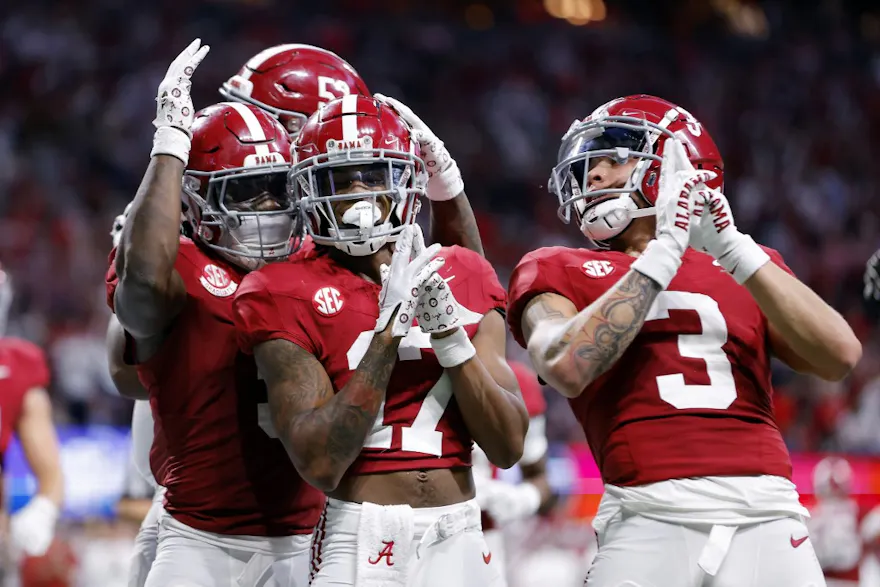Alabama Gambling Bills Move Forward, Legal Sports Betting on Horizon

Alabama took major steps last week toward long-awaited legal sports betting.
The Alabama House of Representatives voted on Thursday in favor of advancing two betting bills that could bring a new state lottery, more retail casinos, and the best sports betting sites to the state. Alabama is one of five U.S. states without a state lottery.
House Bill 151 and House Bill 152 made it through by a 70-32 vote and 67-31 vote, respectively, bringing the best sports betting apps closer to being available in Alabama than they've ever been before.
What do the Bills suggest?
House Bill 151 would require a constitutional amendment, which would need to be approved by three-fifths of legislators in the state before voters of Alabama have the ultimate say. Under Bill 151, 10 of the best mobile casinos would be legalized, along with the best sportsbooks and lottery bingo.
It also would allow sporting venues in the state to acquire a three-day sports wagering license to offer sports betting during their event. That venue would have to seat 60,000 or more spectators.
Bill 152 dives a little deeper into what a legal gambling platform would look like in Alabama. It encompasses lottery, casinos, and sports betting, as well as the creation of an Alabama Gaming Commission that would oversee regulation, taxation, and licensing for the state's industry.
Casinos would be taxed at 24% of net gaming revenue and 95% of total gaming revenue while sports betting would be taxed at 17% of net gaming revenue.
Tax revenue for the lottery under the bills would be earmarked for educational programs in the state. Taxes collected from the best live betting sites and retail casinos would go to the state's general fund, which would assist mental health initiatives, health care, and the improvement of state roads and bridges.
Law enforcement, thanks to an amendment Wednesday by the House of Representatives' Economic Development and Tourism Committee, would also get a share of the tax revenue.
Reasons for voting "Yes" on gambling expansion in Alabama
Alabama lawmakers and proponents are echoing the sentiments heard in other U.S. jurisdictions that have been considering legalization.
First, there is the regulation aspect of such a platform, which takes gambling out of a shady illegal world into a safeguarded, regulated, and highly scrutinized legal gambling world.
Lawmakers in the state know that illegal wagering is already taking place in the state.
Rep. Chris Blackshear said: “One, we have gambling going on in Alabama today. Two, we have illegal sportsbooks, gambling halls, casinos, and more. It’s not capped, it’s not controlled, or taxed in any way whatsoever. The final point I’d like to make is the people want to vote on this.”
Additionally, there is the tax revenue element that is being missed by Alabama's reluctance to adopt a legal gambling platform.
As Rep. Rolanda Hollis said in a recent interview: “We have so many of our constituents that travel to the state lines, outside the state for lottery tickets, to go gaming. And people are going to do what they’re going to do. And when they do this, it puts so much money into the other states. We’re putting kids in other states in school. We’re doing their infrastructure, so on, so on.”
Economic details
Lawmakers were presented with a fair share of financial data ahead of their Thursday vote, all of which puts a hugely positive spin on just what an Alabama gambling industry would mean for the state.
The numbers include:
- Estimates of $15 million to $42.5 million annually in sports betting activity
- Revenues from a gaming platform could range from $315 million to $492.2 million annually
- Lottery could generate revenues of $305.6 million to $379.4 million annually
- Total combined estimates of $935.6 million to $1.214 billion annually from casinos, lottery, and sportsbooks
All of which would be regulated, taxed, and would ultimately benefit Alabama citizens.
Senate's turn to weigh in
Last Thursday's vote to resoundingly approve a huge expansion of gambling in the state of Alabama is just one step in the process of putting the state on a level gambling playing field with 38 other states in America. Now it is up to the state's Senate to have its say before possibly moving the subject of a legal sports betting platform to voters in the November election ballot.
Neighboring Mississippi, Tennessee, and to some extent, Florida all have legal sports betting platforms of their own and are currently reaping the tax benefits of housing such an industry.
The momentum is certainly there for the question of a legal gambling platform to appear on the November ballot. Smart money is on letting the Senate allow Alabama voters to decide on the merits of such a platform for their state.







